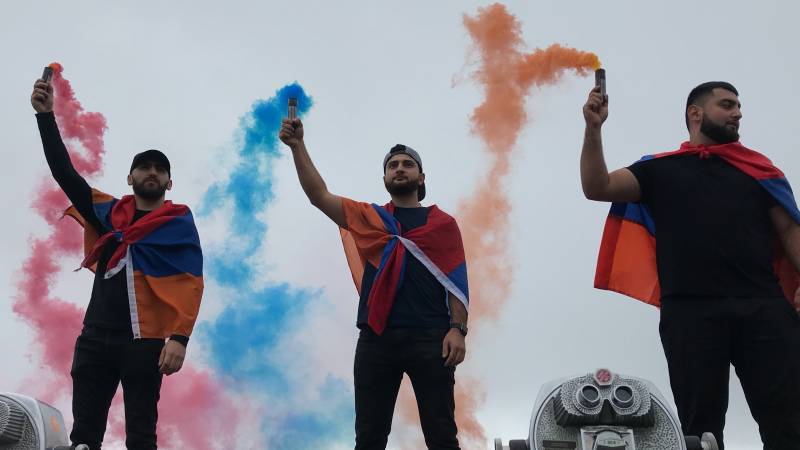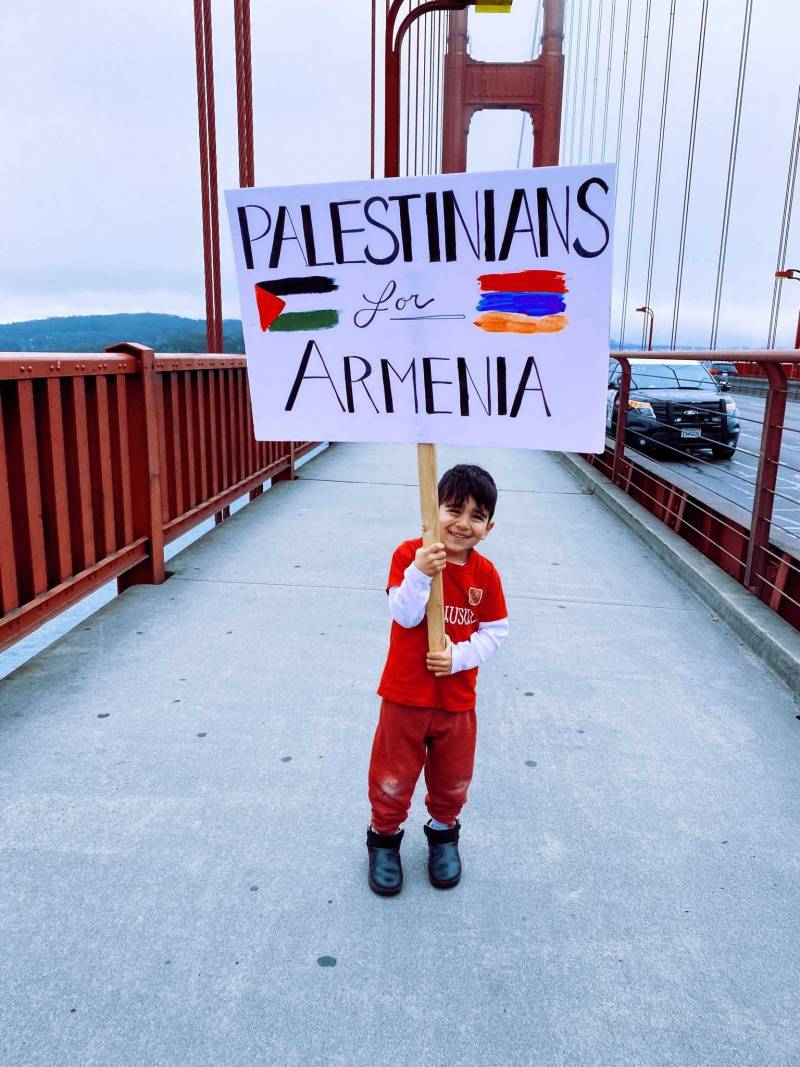Nanor Balabanian, a longtime Bay Area resident and teacher, spoke to KQED by phone from Armenia, where she had relocated just days before this latest conflict began.
"The reason this issue is different than other world issues is because this is a repetition of a genocide. ... In 1915, the genocide happened because the world was silent," said Balabanian, who is of Armenian descent, but was born in Syria, raised in Lebanon and moved to California as a teenager. She most recently taught history and English at a high school in East Palo Alto.
"I left the Bay to come here [to Armenia] and start a learning center," she said, speaking from Armenia's capital. "But now I'm going to focus on rebuilding houses."
Balabanian says the silence from the international community feels personal. She’d like to see social justice movements in the Bay Area, as well as civil society more broadly, show support for her people.
"I've always supported every movement, Black Lives Matter — we were there at the protests. Issues against immigrants and the immigrant community and the deportation centers — we were there protesting," she said. "Do you know what's going on here? How many times do I have to tell you how I need your help? I need your advocacy."
Correction: The original version of this article stated that hundreds of people participated in the march on Saturday across the Golden Gate Bridge. There were, in fact, thousands of demonstrators — roughly 3,000 by one estimate.
KQED's Nina Sparling and Kate Wolffe contributed to this report.

